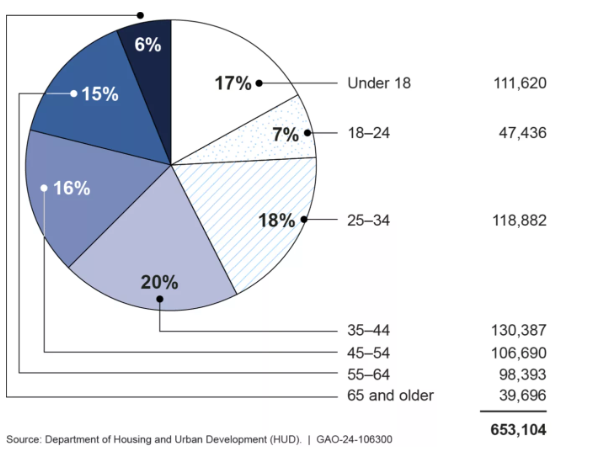The sexual depiction of female athletes is a running dilemma in sports media coverage and has been for years. Women deserved to be highlighted for their athletic abilities, not their sex appeal, in order to show off their achievements. The idea that ‘sex sells’ means that women bring in more money if they are willing to pose a specific way or sexualize themselves in exchange for sponsorships and endorsements; this is where the ethicality of the dilemma lies.
The idea that “sex sells” exists because sex attracts the attention of a male audience. A scantily clad posed woman catches the average male’s eye a higher percentage of the time than a fully clothed woman casually playing a sport; the fact that the brand Playboy has female athlete issues exemplifies this.
The Olympics has its own set of specific regulations athletes are required to adhere to when competing. In 2020, the German national gymnastics team took a stand against the short, high-cut typical leotards and protested by wearing full-length, full-coverage leotards. The team took a stand against the sexualization of women’s sports through the requirement and normalization of the typical high-cut revealing gymnastics uniform.
After Larry Nassar was sentenced to 175 years in prison for sexually assaulting hundreds of young gymnasts, various female gymnasts came forward to speak out against Nassar, as well as how the sport of gymnastics allows for the objectification and sexualization of young female athletes. The bikini-cut leotards are a large part of the issue; especially given that male gymnasts typically wear pants or as well as medium-coverage shorts along with a stomach-covering top.
The Olympic committee did not rule the German gymnasts’ way of protesting as a violation of rules, however, the Norwegian women’s beach volleyball team did not have the same luck.
The Norwegian Olympic women’s beach volleyball team wore shorts to compete in the same Olympics and to also protest the sexualization of female athletes through revealing uniforms. For the beach volleyball Olympic games, women are required to wear bottoms, “with a close fit and cut on an upward angle.”
The women were all fined for wearing shorts as opposed to the typical Olympic-approved bikini bottoms while competing. Their refusal to play in bikini bottoms resulted in a fine of over 1000 dollars and receiving hate from people in authoritative positions like the Norwegian Handball Federation president Kåre Geir Lio who deemed the shorts “not appropriate” for the sport of beach volleyball.
The German gymnastics team, as well as the Norwegian Volleyball team both received an influx of media attention sparking the debate once more about how sports should be about talent, not sexualization or “sexploitation.” Pop singer Pink sided with the Norwegian team against the Olympic committee and paid the entire fine for not abiding by the proper uniform regulations. Pink even tweeted about the event, “The European handball federation should be fined for sexism.” Alongside Pink, thousands of women reached out to the Norwegians expressing that their empowering move was inspirational to female athletes everywhere.
Women’s beach volleyball and gymnastics receive more coverage than males competing in either of these sports. Statistically, men’s sports are more commonly watched over women, which supports the argument that women are not fairly being recognized for their athletic ability but rather their sex appeal. This is not to say that women who play beach volleyball or compete in gymnastics are not extremely talented, it is that the only sports where women are required to wear revealing uniforms receive more viewership than any other sports played by women.
The media focuses on how beach volleyball appeals to a male audience with organizations like Buzzfeed making content like, “Women’s Beach Volleyball Players In Super Slow Motion.” Beach volleyball is an extremely empowering sport for young and older women alike across the globe. Beach volleyball consists of players in their late 20s and 30s which is very uncommon in most high-intensity Olympic sports. The portrayal of beach volleyball players alongside all female athletes in media is one piece of the puzzle to the paradox that is the sexualization of female athletes in media.
Another example surrounds Louisiana State University gymnast Olivia Dunne. Dunne is a successful collegiate gymnast who made the honor roll and was named an All-American athlete her freshman year. The 20-year-old has an estimated net worth of over $2 million; however, her net worth is controversial among women in sports because of how she earns it.
The young gymnast has grown a significant following and reputation on Instagram and TikTok within the past year and a half for posting lip-syncing videos to various audios and doing aerials in a bikini on the beach. Olivia Dunne has taken advantage of the “male gaze” in a way that benefits her net worth, and her brand. The petite, blonde gymnast is talented nonetheless but is predominantly recognized for her sex appeal. This has prompted teenage boys to interrupt her competitions and Dunne herself to engage in sexualized brand deals.
In an article with the New York Times, Stanford women’s basketball coach Tara VanDerveer called Dunne’s personal choices “a step back.” VanDerveer is referring to the “regressive” effect she believes Dunne promotes through her subjectively “scandalous” social media posts and various endorsements.
On their own individual platforms, women have the choice to choose how they want to portray themselves, but they do not have control over how the media will choose to portray them. One example is Dunne versus female Stanford Basketball player Haley Jones. Dunne is sponsored by feminine clothing-specific companies like Forever21 and American Eagle whereas Jones is sponsored by big athletic brands like Nike and Beats by Dre. Putting the two Instagram accounts side by side speaks for itself. Dunne posts subjectively more ‘enticing’ photos like posing in bikinis on the beach whereas Jones told the New York Times she doesn’t feel the need to post bikini pictures because it’s not what her audience wants from her. Whereas Dunne is selling her sensuality, Jones is selling and branding herself around athletic prowess.
Jones made an interesting argument in her interview with the New York Times explaining that as a woman, you can be sexualized by wearing full-coverage outfits as well. Being a woman means risking being sexualized in the face of the media no matter who you are or what you choose to post. This is the ultimate paradox, and it has been happening for decades.
Between 1984 and 1988 Figure Skater Katarina Witt won six European championships and four world titles becoming an important and inspiring figure in figure skating. In 1988, Witt appeared on the cover of Playboy magazine with the caption “Gold Medal Ice Skater Katarina Witt nude” plastered next to a promiscuously posed photo of herself without an ice skate insight. This issue of Playboy was the second issue to ever wholly sell out, and Witt received over 100,000 dollars for the position.
As a powerful female athletic role model, Witt explained that she had been asked to work with Playboy for over ten years and continuously refused. It wasn’t until 1988 when Playboy decided to give her complete control over the elements inside the magazine that she agreed. She told Forbes magazine, “After 10 very successful years as a professional skater I felt stuck with a cute, pretty, ice princess image. I wanted to change people’s perceptions but it was important that the pictures were sensual so I chose natural settings, the beach and in water where it was completely natural to have no clothes rather than be provocative in stockings or sexy lingerie.”
Witts’s complete control over the content within the 1988 edition of PlayBoy magazine with her on the cover allowed for the amount she was sexualized to be under control to some extent with no completely nude photos of her inside. She also told Forbes, “…to me, the biggest compliment was that more women than men bought the magazine.”
Witt was featured in Playboy under very specific conditions that most women who pose for the magazine don’t get the option of doing. By choosing the beach and settings with water, she wore bathing suits as opposed to lingerie so as not to come off as sexualizing herself as much. Witt is still highly recognized for being an empowering female athlete as well as a role model to many young women. The fact that she was featured in Playboy never took away from her achievements or athletic capabilities.
Witt was successful in her feat to not make her audience lose sight of her talent and worth on the ice skating rink; as a powerful figure that younger girls looked up to she wanted her image to be maintained to some extent; and did so successfully.
It remains true, however: sex sells. The dilemma of how women are marketed in the media to appeal to an audience of men is a dilemma that is hard to tackle because it’s true; the sexualization of women can statistically bring in more money for any company that chooses to endorse a female athlete and the athlete themself. Female athletes take on the role of inspiring thousands if not millions of young women every day. The very fact that the Norwegian Olympic team was punished for making an effort to not be sexualized proves that its institutions and companies themselves continue to push this idea of sex selling more than recognizing female athletic talent and capability.
Regardless of the fact that ‘sex sells,’ female athletes deserve to be highlighted and commended for their athletic talent and capability–not their sex appeal.












